Infrastructure Can Be a Powerful Driver of Gender Equality in Bangladesh
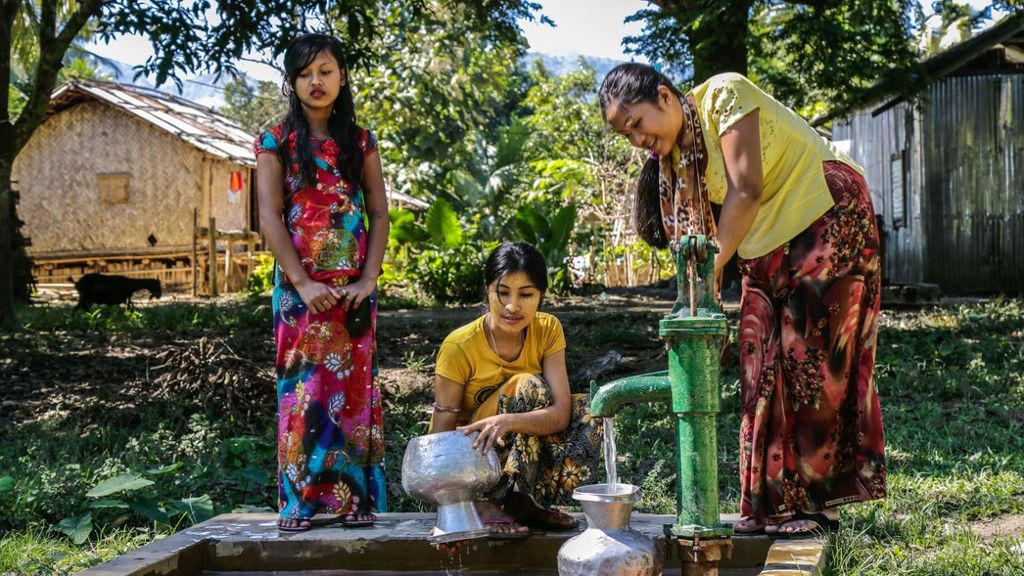 Women need to be part of the decision-making in all phases of infrastructure projects, and giving them a voice in such crucial driver of economic growth will go a long way in reducing gender inequality
Women need to be part of the decision-making in all phases of infrastructure projects, and giving them a voice in such crucial driver of economic growth will go a long way in reducing gender inequality
MANILA, PHILIPPINES (17 July 2017) — Infrastructure projects have significant potential to increase the economic empowerment of women in Bangladesh and contribute to the government’s efforts to promote gender equality, says an evaluation of the Asian Development Bank’s (ADB) support for gender and development in the country by ADB’s Independent Evaluation Department.
The evaluation makes clear, however, that building new roads, expanding electricity grids and improving water supply services — the mainstay of ADB’s support for Bangladesh over the past decade — do not automatically lead to better livelihood opportunities for women or other gender-equitable results.
“Women must be given a seat at the table in infrastructure-building,” says Marvin-Taylor Dormond, Director General of Independent Evaluation at ADB. “Women need to be part of the decision-making in all phases of infrastructure projects, and giving them a voice in such crucial driver of economic growth will go a long way toward reducing Bangladesh’s still high levels of gender inequality.”
The evaluation assessed ADB’s support for gender and development in its Bangladesh operations during 2005-2015. The period saw a marked increase in infrastructure projects in ADB’s $9 billion portfolio for the country, of which infrastructure accounted for $5 billion.
Both the Government of Bangladesh, in its Seventh Five Year Plan 2016-2012, and ADB are committed to promoting gender equality. The evaluation found that this collaboration and ADB’s “top-down and bottom-up” approach to strengthening gender equality by working with government ministries, local governments, and communities was effective.
ADB-supported infrastructure projects in Bangladesh were particularly effective in promoting gender equality when they enhanced women’s access to education and health care, and helped promote their economic empowerment. For example, the $206 million Second Rural Infrastructure Improvement Project, to improve roads in the Chittagong, Dhaka, and Rajshahi divisions increased livelihood opportunities by building sections for women in markets, and training women in shop management and other income-generating skills. The road improvements also contributed to increasing the enrollment of girls in schools, and made it safer and easier for women to go to work.
The evaluation found that significant strides have been made in reducing gender disparities in education and health in Bangladesh, where the status of women has generally improved over the last decade.
But women continue to face high levels of inequality in livelihood opportunities and access to economic assets. In rural Bangladesh, women own only 8% of productive assets, according to the latest available estimate. Women’s participation in the workforce, though improving thanks to the garment industry, labor migration and microfinance programs, remains low, at an estimated 34%. The evaluation raises the concern that these factors will heighten the risk of women to the effects of vulnerability to shocks.
“Because of high levels of inequality in livelihood opportunities and economic assets, women have far less resilience than men to various shocks, such as natural disasters, climate risks, and economic downturns,” says the evaluation report’s main author, Hyun Son.
“Poor women typically lack the resources to protect themselves in case of disasters or restore their lives back to pre-disaster levels. Better social safety nets are needed for Bangladesh’s marginalized groups, particularly women, and this should be a priority area for development support,” says Son.
Two ADB-supported programs — the Public Expenditure Support Facility Program and the Countercyclical Support Facility Program — helped the government to increase spending on social safety nets, especially for women. Both programs aided government ministries in putting gender equality into the mainstream of their work.
An important conclusion from the evaluation is that there was little focus in operations to get men to support gender equality. Gender issues are not just women’s issues. Men are important stakeholders in making progress toward gender equality, particularly in South Asia. “Men need to be involved in addressing gender inequalities and supporting women’s empowerment, lest they resort to violence in response to such empowerment,” says the evaluation. In its recommendations, the evaluation urges ADB to actively involve men in its advocacy and education campaign efforts on gender equality.
About Independent Evaluation at the Asian Development Bank
Asian Development Bank's Independent Evaluation, reporting to the Board of Directors through the Development Effectiveness Committee, contributes to development effectiveness by providing feedback on ADB's policies, strategies, operations, and special concerns in Asia and the Pacific.
news/infrastructure-can-be-powerful-driver-gender-equality-bangladesh
Australia Provides Additional Funding to Develop Timor-Leste's First Commercial Bank
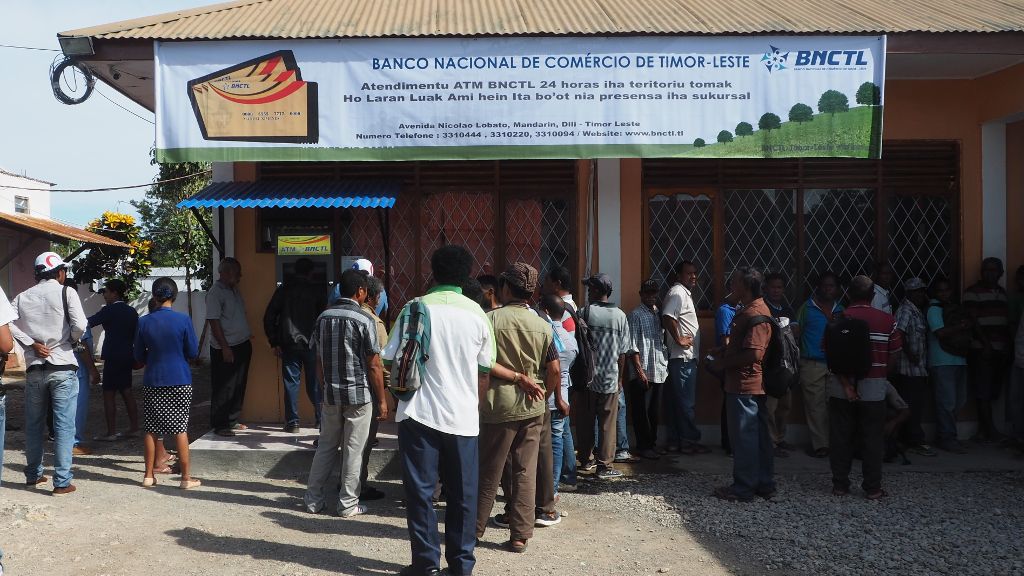
DILI, TIMOR-LESTE (17 July 2017) — The Government of Australia has provided AU$400,000 ($306,000) in additional financing to the ongoing commercial transformation of the Banco Nacional de Comércio de Timor-Leste (BNCTL), supported by the Asian Development Bank (ADB).
“BNCTL has come a long way since it was upgraded to Timor-Leste’s first commercial bank, delivering banking services to people in rural and urban areas, while contributing to economic growth and development,” said Paolo Spantigati, Country Director of ADB’s Timor-Leste Resident Mission. “We look forward to continue being part of BNCTL’s growth.”
The additional financing will complement the ongoing work to commercialize BNCTL by strengthening critical functions of credit risk, operational risk, compliance, and audit to sustain the bank’s operations as it continues to grow.
An important milestone was reached in January 2017 with the implementation of 20 automated teller machines (ATMs) across the country, allowing BNCTL customers to access their money at their convenience. BNCTL continues to create awareness for existing and prospective customers on how to apply for and use ATM cards to withdraw cash and transfer funds.
Over the next 12 months, ADB will support BNCTL to implement a new core banking system which will support mobile phone banking and internet banking services. This will give customers further flexibility over their banking needs, eliminating the need to travel to a branch and queue up to access funds or pay bills.
ADB’s technical assistance supported the transformation of BNCTL from Instituição de Micro Finanças de Timor-Leste, a microfinance institution into a commercial bank with an unrestricted banking license in July 2011. It is the country’s first locally owned bank, providing services mainly to the poorer sections of the population and small businesses on commercial terms. The government, as the sole shareholder, and the central bank have now directed BNCTL to play a more active role in the banking sector.
ADB, based in Manila, is dedicated to reducing poverty in Asia and the Pacific through inclusive economic growth, environmentally sustainable growth, and regional integration. Established in 1966, ADB is celebrating 50 years of development partnership in the region. It is owned by 67 members—48 from the region. In 2016, ADB assistance totaled $31.7 billion, including $14 billion in cofinancing.
news/australia-provides-additional-funding-develop-timor-lestes-first-commercial-bank
Lack of policy support drives coin out of market
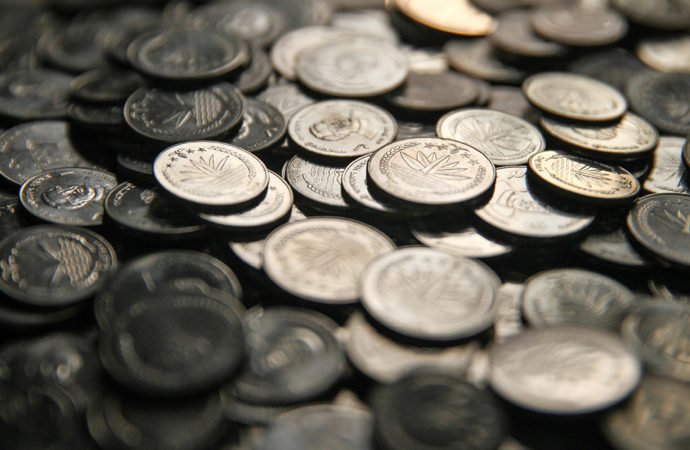
As the central bank's vaults are almost overstocked with huge coins, it has directed banks to accept coins according to limits fixed on the basis of their branch sizes
It is not long ago when coins of various denominations came in very handy with day-to-day financial transactions alongside currency notes, but nowadays the metallic money with smaller values have ceased to function.
The lack of policy support by the central bank and its failure to control transactions using coins are attributed to the cause of their disappearance from the retail markets.
Sources said instead of facilitating smaller transactions, they have ended up in the Bangladesh Bank vault, thus leading to crisis in the retail transactions by end users.
Banking sources said except in some departmental stores or shopping malls, coins are not of much use in the market and those who save coins out of their interest also replace them with paper notes in the course of time.
A source in the central bank said it has an accumulation of coins worth Tk500 crore of different values, including 1 paisa, 5 paisa, 10 paisa, 25 paisa and 50 paisa, Tk1, Tk2 and Tk5.
Of the smallest denominations of currency, 1 paisa, 5 paisa, 10 paisa, 25 paisa and 50 paisa have lost their uses in the market, with Tk1, Tk2 and Tk5 remaining idle in the vault despite their necessity in the field of transactions.
As the central bank’s vaults are almost overstocked with huge coins, it has directed banks to accept coins according to limits fixed on the basis of their branch sizes. The limit starts from Tk5,000 to Tk30,000 depending on branch sizes.
Cashing in on the limit, some vested interests are collecting coins from the market and pouring them into the central bank’s stock.
On the other hand, businesses alleged that different branches of scheduled banks across Bangladesh refused to accept coins from them.
A Narsingdi Bakery owner Abul Khair told the Dhaka Tribune that he has around Tk13 lakh in the form of coins but the banks in his area are reluctant to take them.
“I am now at a loss, since the banks are not taking the coins from me. I am running my business on bank loan. What shall I do if the banks do not accept coins?” Khair posed a question.
According to the central bank directive, individual banks are bound to accept coins valued at Tk1,000 from a person daily.
It is noticed that the banks are disinterested in taking coins due to counting difficulty, thus disregarding the central bank’s instruction.
Contacted, Bangladesh Bank Executive Director Subhankar Saha, also the spokesperson of the bank, told the Dhaka Tribune that all the authorised banks have to comply with the directive issued by the Bangladesh Bank and stern actions will be taken against those who fail to do so.
Almost all countries in the world have made their coins an integral part of daily transactions and they do not have same currency notes alongside coins, but Bangladesh has both.
Bangladesh Bank officials said except in some South Asian countries, nowhere in the world, coins and currencies of same denominations coexist.
They cited India, Nepal and Bhutan having some currencies of same denominations alongside coins, but supply of those currency notes are few and far between.
A source in the Ministry of Finance (MoF) said a cohort of the ministry officials pursue their high-ups to direct the central bank for printing currency notes of same denominations as coins to satisfy their self-interests.
The central bank is often subjected to the pressure or influence of MoF, added the source.
According to Bangladesh Bank, coins last at least 40 years, but notes depend on their uses. Sometimes, many notes turn unusable within a few months of printing.
Experts said circulation of coins in the market is necessary to reduce dependence on paper notes whose printing is costlier than minting coins.
Analysts say availability of both coins and paper notes of same denominations has encouraged people to opt for notes rather than coins during transactions to avoid weight in purses or wallets.
Besides, they said there is an absence of options like vending machines and buying electronic tickets for buses or trains where people are to be compelled to use coins helping circulation of lower denomination currencies in the market.
Dr Salehuddin Ahmed, former governor of Bangladesh Bank, said the central bank has failed to execute its existing policy on the use of coins. Not only this, Bangladesh Bank has also been unable to take up proper strategy to circulate coins in the market.
“A certain amount of coin transaction has to be made compulsory in retail transactions so that people feel encouraged to exchange coins in their daily business activities.”
The former governor also suggested not circulating same denominations of coin and currency in the market.
Asked about putting an end to printing and minting currency notes and coins of same value, Bangladesh Bank spokesperson Subhankar Saha told the Dhaka Tribune: “We will decide on it after our policy review in this regard.”
News:Dhaka Tribune/17-jul-2017Dhaka Bank launches LC management solution
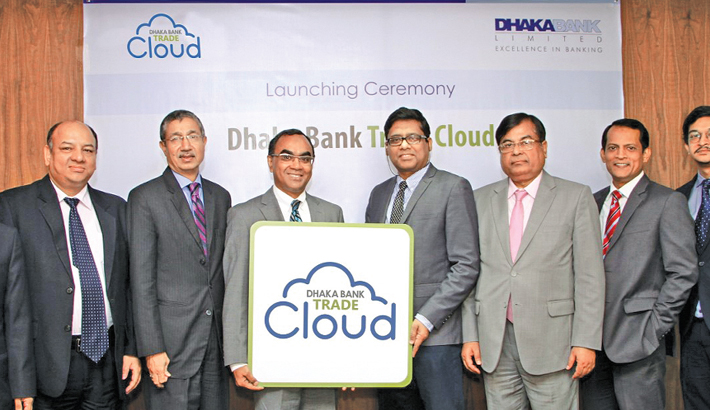
Dhaka Bank Managing Director and CEO Syed Mahbubur Rahman launches the Dhaka Bank TradeCloud service at its corporate office in the capital recently.
Dhaka Bank Limited recently launched ‘Dhaka Bank TradeCloud’, an automated and highly secured LC management solution for its corporate clients.
Through this solution, a customer can not only apply for LC (Letter of Credit) digitally, but also submit documents, receive advices/statements/SWIFT messages, said a press release.
This faster and convenient service also allows real-time service tracking for the customers. Mentionable that Dhaka Bank is the first local bank to introduce such service in Bangladesh.
News:Daily sun/17-jul-2017M Fakhrul Alam, Managing Director of ONE Bank Limited, celebrating its 18th Founding Anniversary at its head office in the city on Thursday. Senior Executives and employees of the bank were also present on the occasion.
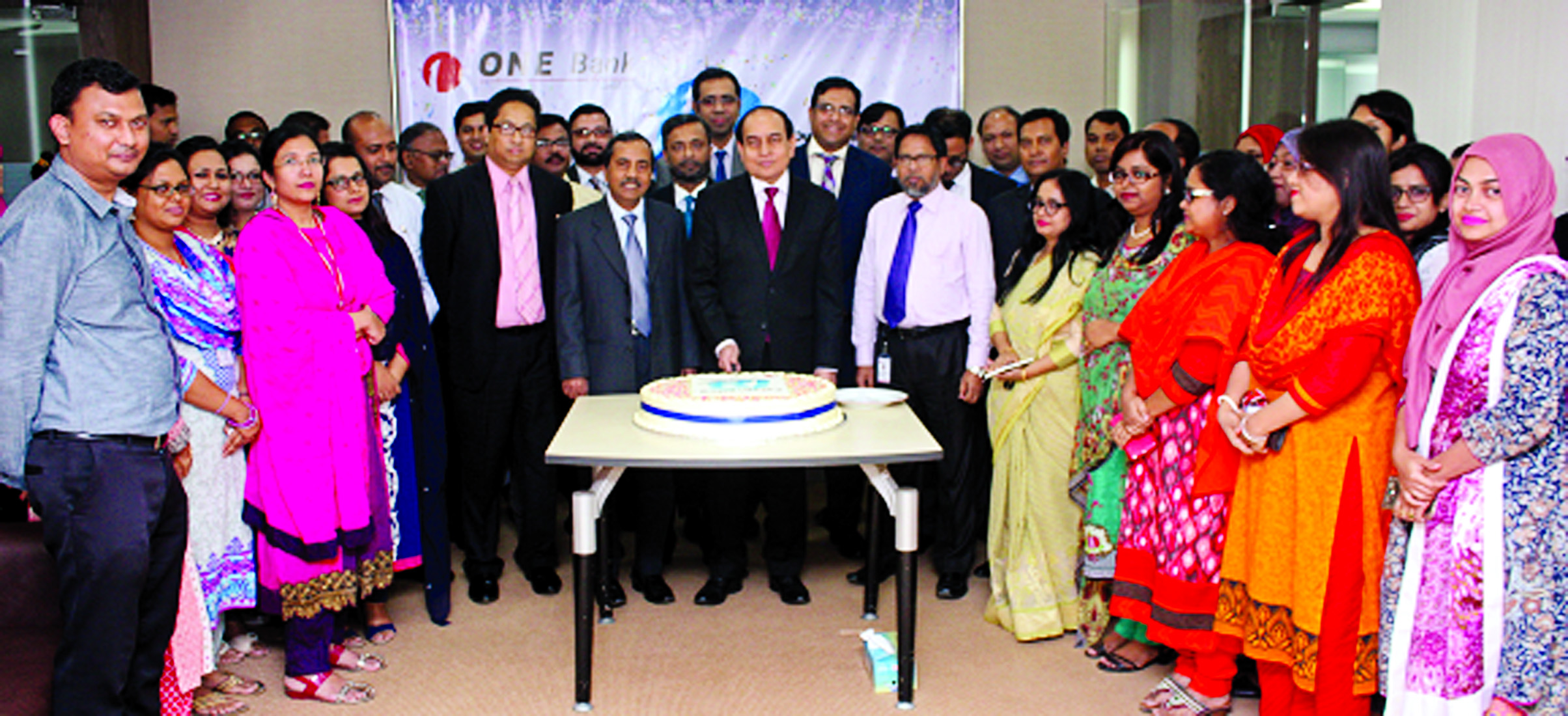 M Fakhrul Alam, Managing Director of ONE Bank Limited, celebrating its 18th Founding Anniversary at its head office in the city on Thursday. Senior Executives and employees of the bank were also present on the occasio
M Fakhrul Alam, Managing Director of ONE Bank Limited, celebrating its 18th Founding Anniversary at its head office in the city on Thursday. Senior Executives and employees of the bank were also present on the occasio



